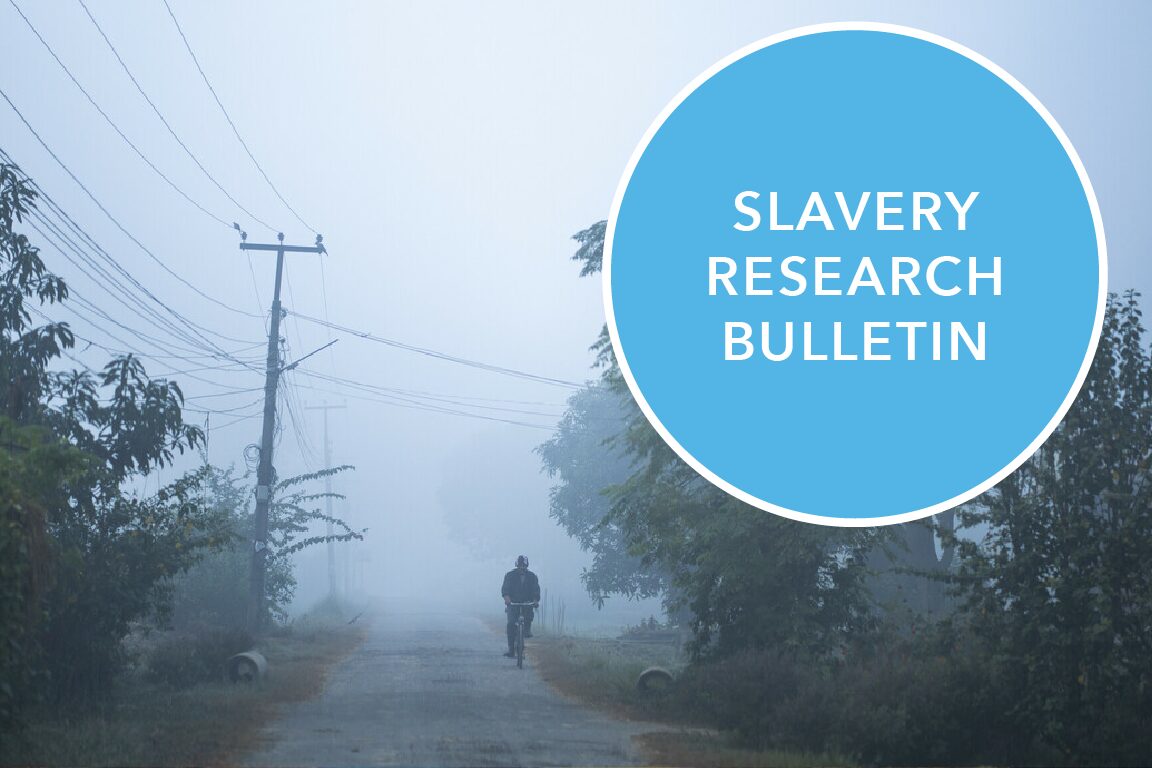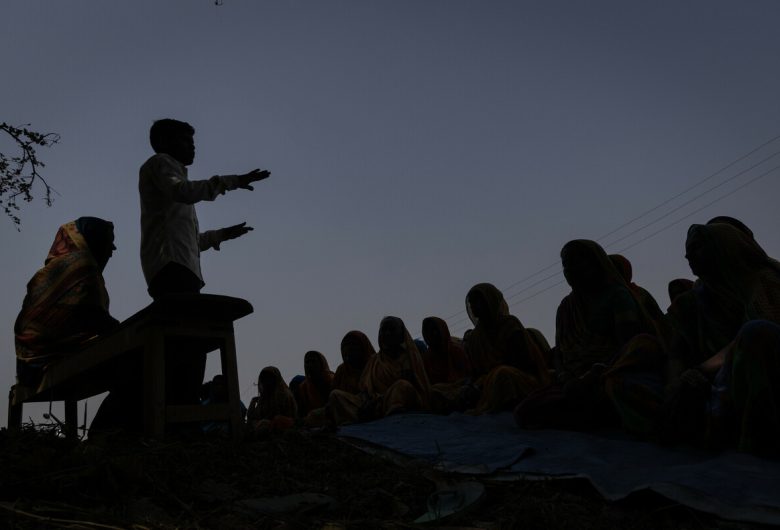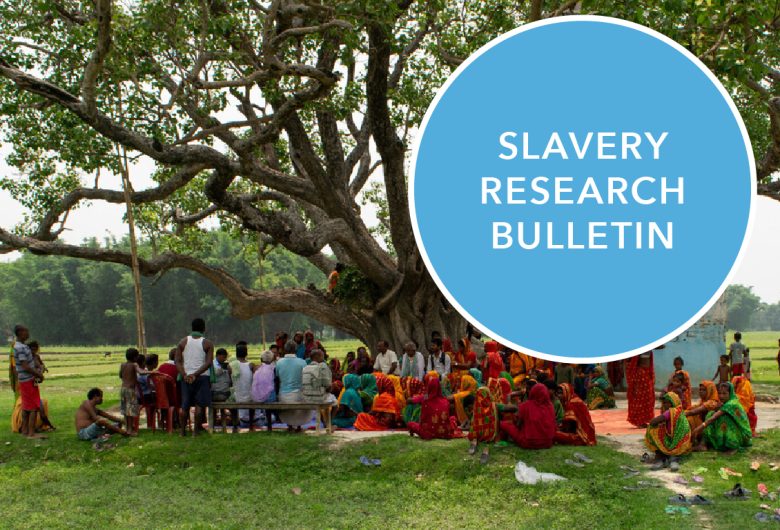Welcome to the Freedom Fund’s monthly bulletin designed to bring you new and compelling research from the global anti-slavery movement.
A framework to maximise the influence of strategic litigation on corporate behaviour
Research by the University of New South Wales, Macquarie University and The Freedom Fund assesses the impacts of strategic litigation on corporate behaviour regarding human rights. Drawing on a literature review, in-depth analysis of 11 cases, and insights from 48 experts, the study finds that while litigation has been successfully used, its systemic impact on corporate behaviour remains slow and patchy. It proposes an ‘Impact Framework’—comprising of six categories and 16 indicators—to consider the broader impact of strategic litigation and its role alongside other complementary strategies such as civil society advocacy, media campaigns and complaints to regulatory bodies.
Meaningful engagement of survivors in modern slavery research
The University of Leicester and Unseen brought together academic researchers and survivors to reflect on their journey of co-producing research using participatory methods. Using the Action Learning approach, the project engaged ten peer researchers with lived experience to collaborate on a study about adult services websites. The paper illustrates how lived experience enriched the design, analysis and communication of research findings. It also highlights challenges encountered by the team, such as different working styles between members in and outside of academia, the complexity of arranging translators, and ways to prevent and respond to re-traumatisation.
Kenyan migrant domestic workers face abuse in Lebanon
Migrant Workers’ Action reports on the experiences of live-in Kenyan migrant domestic workers (MDWs) who were working in Lebanon between 2014 and 2022. Based on interviews with 52 returnees, it sheds light on the plight of MDWs under the kafala system and inadequate assistance from the Kenyan consulate for those who escaped abusive employers. The study reveals that 80 percent of participants were denied a weekly rest day and all were working excessive hours, ranging from 14 to 21 hours per day. Many survivors of abuse struggle without access to psychosocial and vocational assistance, compounding the challenges they face post-return.
Deceptive labour rights practices in the global supply chain
A team led by the University of Michigan examines the implementation of international labour standards by actors at different stages of the supply chain. Their systematic review, incorporating 70 articles, indicates that non-compliance is rooted in the weakening of labour unions, conflicting interest of third-party social auditors and deceptive behaviours of suppliers. Fraudulent tactics used to pass third-party audits include ‘double bookkeeping’, forging employment contracts, setting up fake ‘show factories’ to hide real working conditions, and threatening workers to control their communication with auditors.
Elevating the voice and agency of young people in evaluations
The United Nations Population Fund (UNFPA) engages young people across 14 countries to evaluate its Strategy on Adolescents and Youth, introduced in 2019. The evaluation encompassed insights from over 1,300 key informants and staff, including 832 youths who participated in focus group discussions, 14 who served as young evaluators and eight who acted as steering committee members. Key findings include challenges around differing interpretations of the strategy at the country level, limited youth-responsive sexual and reproductive health services, and varying understandings of meaningful youth participation in different contexts.
Read on
Free the Slaves and its local partner, Justice Peace Integrity of Creation,
Integrated Development Center, highlight the reality of human trafficking in climate change-affected communities in the Philippines.
The Modern Slavery and Human Rights Policy and Evidence Centre emphasises the role and responsibility of UK prisons in protecting the rights of trafficking survivors.
A study led by the University of Sheffield discusses safeguarding concerns that arise when supporting young people to take part in research on child sexual exploitation.
Freedom Fund news
In their own words, hear from the leaders of the Hawara-Charawa movement on the importance of uniting as a community to end intergenerational bonded labour.
Visit our Newsroom for more updates.
Research library
Visit our Slavery Research Library to access anti-slavery resources from across the globe.
Contact
The Slavery Research Bulletin is produced monthly by the Freedom Fund, a global fund with the sole aim of helping end modern slavery.
Research being featured in this bulletin does not equal endorsement by the Freedom Fund.
Click here to sign up to the Slavery Research Bulletin mailing list.
Photo credit: JDot Films/The Freedom Fund



